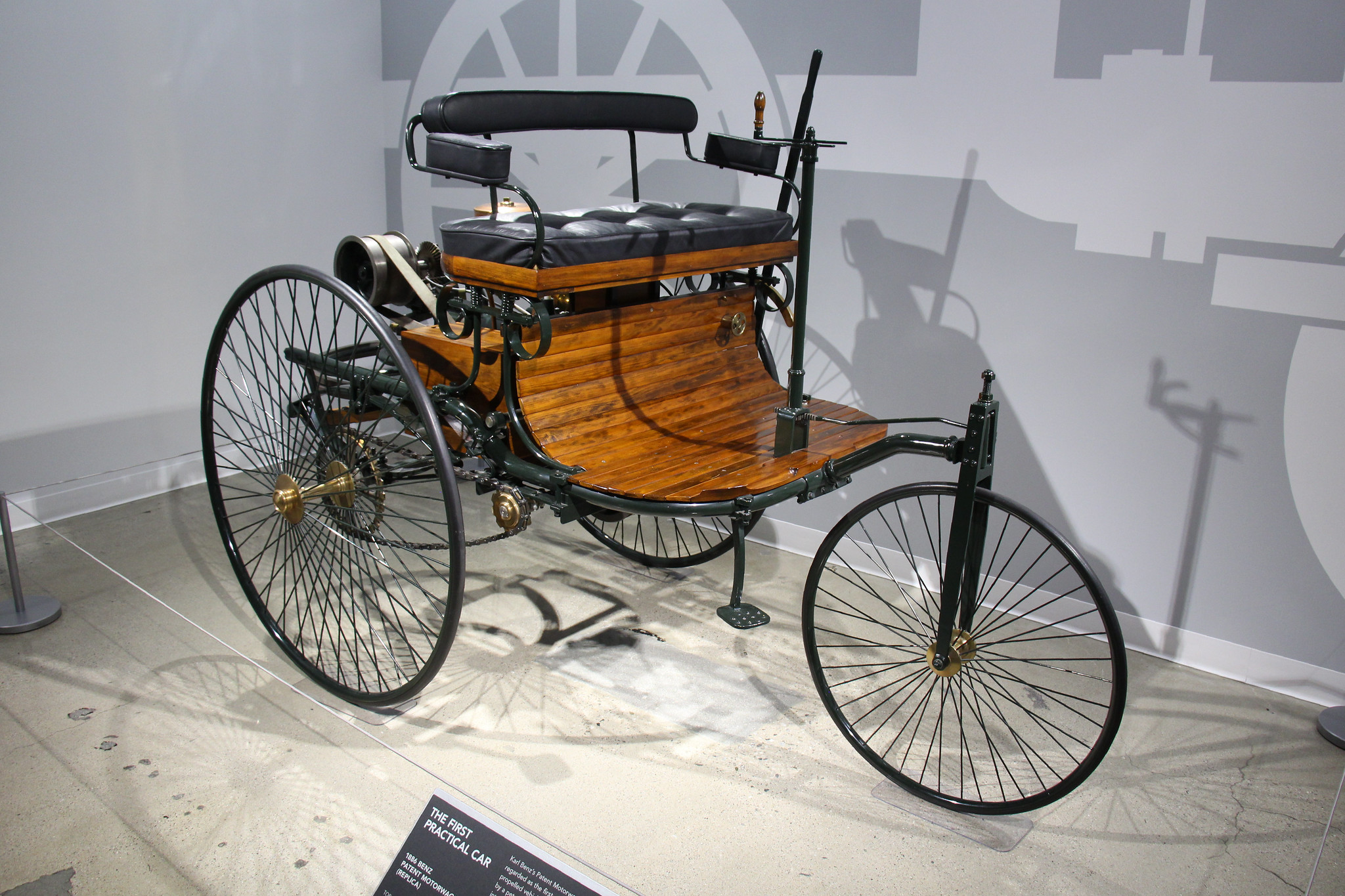On this day in 1886, Carl Benz, the father of the automobile, patented the world’s first gasoline-powered car. The Benz Patent-Motorwagen was a compact two-seater featuring a high-speed single-cylinder four-stroke engine, a tubular steel frame, and three wire-spoked wheels—one in the front and two in the rear.
It was priced at 600 German marks, roughly 150 US dollars upon its debut.
Granted, it bore little resemblance to the cars we drive today, lacking modern comforts such as windows, doors, or even a roof. Yet, it was a groundbreaking invention that ignited visions of mobility, luxury, and progress.
To prove its capabilities, Carl Benz’s wife, Bertha, took the world’s first long-distance drive in 1888, covering 180 kilometers from Mannheim to Pforzheim with her two sons without her husband’s permission. Her journey showcased the vehicle’s reliability, drawing widespread praise and attracting crucial investment.
Today, the historic route she traveled is known as the Bertha Benz Memorial Route, a tribute to the family’s pioneering role in the automotive industry.
Following its success, the Benz Patent-Motorwagen became the first commercially available automobile in history.
The success of the Benz Patent-Motorwagen sparked high demand for improved models. As public fascination with automobiles grew, Benz worked tirelessly to refine his designs, enhancing speed, stability, and usability. With each iteration, the automobile became less of an elite luxury and more of a viable means of transportation, laying the foundation for the modern car industry.
By 1894, Benz had refined his prototype, adding a fourth wheel. The result, the Benz Velo, introduced double-pivot steering and planetary gear transmission, making it more stable and efficient. It quickly gained popularity across Europe, particularly in France, where it carried the winners of the inaugural Paris-Rouen race in 1894.
Speed was one thing, but reliability and ease of use made Benz’s creation truly revolutionary, transforming the automobile from a novelty into an everyday necessity.



